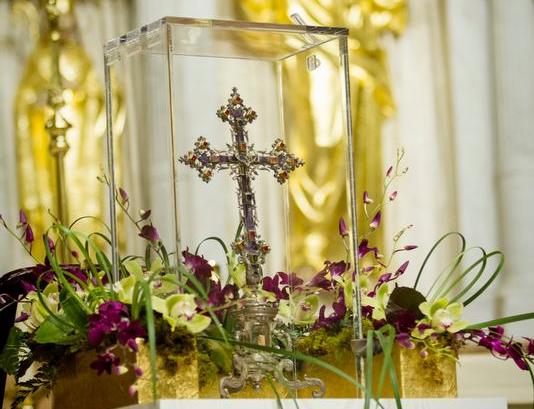It’s no accident that Christ came into the world during the night, writes Fr Martin Henry
Fr Martin Henry
It’s slightly ironic that the Son of God, the light of the world, should have been born not during the hours of daylight, but in the middle of the night. This was a feature of Christ’s birth that was often commented upon in the early church. From earliest times, Christian thinkers saw a profound significance in the fact that Christ was born at night, and not in the daytime. They saw a deep symbolical meaning in the circumstances of Christ’s birth. The natural light of our world is, of course, the sun, which shines by day and clarifies our world for us, thereby, however, also concealing by its own light the marvels of the starry sky.
So, in calling Christ, who was born during the hours of darkness, the light of the world, the early Christians believed that, with Christ, they were dealing with something other than the natural light of the sun. They believed that with the birth of Christ a light had come into their world that was of a different quality from the natural light of the sun.
The source of the light Christ brought, the source of the light he incarnated, was not thought of as natural, but supernatural. It was a light that came directly from God. It was not the created light of the sun, but the saving light of God himself; not, fundamentally, the light of creation, but the light of redemption.
However, there was a further significance the early Christians saw in the fact that Christ came into the world during the night. They knew that night is also a symbol of the frequent darkness of human history.
And in seeing Christ’s light as illuminating the darkness, they believed that the light of Christ was a force that none of the darkness of this world could ever overcome, as St John was to put it in the opening chapter of his Gospel.
It was this faith or conviction that the first Christians passed on to subsequent generations, and it is still the same faith that continues to justify the unique place Christmas – the season of goodwill – still holds in our culture. For why exercise goodwill in a world ruled and controlled ultimately and irredeemably by ill-will and malice?
It is, in other words, the belief that, no matter how terrible or awful human history may be or become, it can never overpower or extinguish the light of Christ, it is this belief that gives the Christmas season its most credible, theological raison d’être.
But it must be conceded that this is a belief or a claim, the Good News, indeed, that Christianity has to tell; it is not a statement of scientific fact.
Facts consist of things like our awareness of the grim truth that even at this moment, while it is fairly peaceful here and now in this particular part of our planet, elsewhere in our world the darkness of life is also a reality in the wars, destruction, terror, and crime that have always constituted the murky shadow-side of human history.
Christianity has, however, always been inspired by the belief that Christ’s redemptive and saving light will until the end of time be more powerful than any human darkness, because it is, to the eyes of faith, a light that is not of a natural, but a supernatural, indeed a divine origin, and God cannot finally be defeated by any force from within his own creation.
But this is, to repeat the point, a belief or a claim; it is not a statement of fact.
It must also be conceded that this simple but profound Christian faith, which came into the world roughly 2,000 years ago, has not driven away all the shadows of our world, but it has continued to shine throughout the past two millennia and it can continue to illuminate our path through the “night of the world,” as St Augustine once put it, and lead us into the full daylight of God’s Kingdom in heaven.
Good news
The good news of Christmas that doesn’t age or change, is that the Son of God who became incarnate for us on the first Christmas night almost two thousand years ago is also God’s promise that humanity’s long journey through the night of history will not have been in vain but will finally be seen to have been justified.
However, no amount of ecclesiastical urging or theological huffing and puffing can give this faith any higher status than that of a claim, whose credibility resides, as far as the naked eye can judge, at least penultimately in the lives of those who profess it. But for those who believe in the triumphant reality of goodness, this should be more than enough.
Fr Martin Henry, sometime lecturer in theology at St Patrick’s College, Maynooth, is a priest of the diocese of Down and Connor.


 A relic of St. Augustine of Hippo. Photo credit: CNS
A relic of St. Augustine of Hippo. Photo credit: CNS 